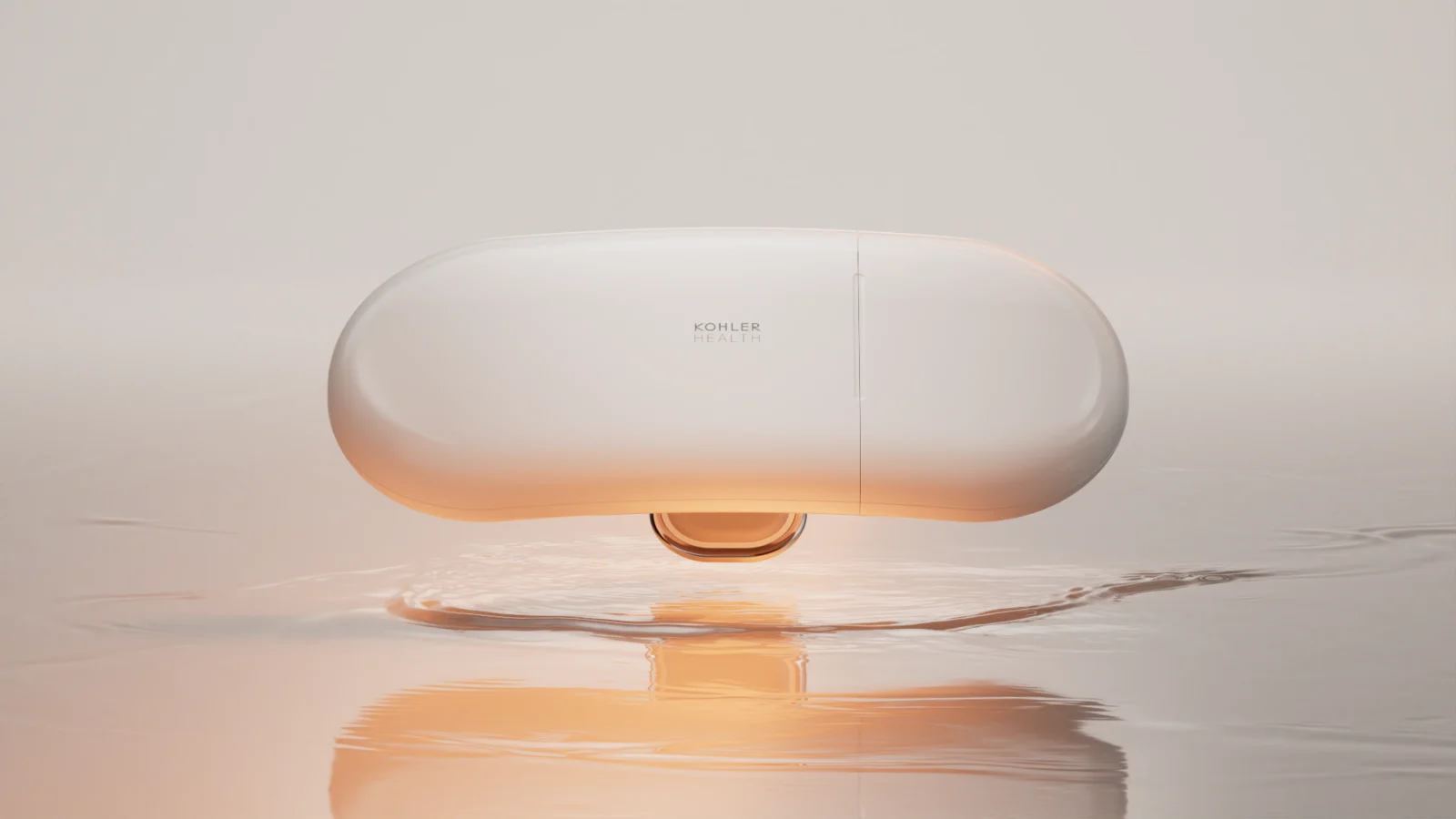Today was one of those days where the health and science news cycle really delivered. I mean, we're talking Nobel Prize announcements, massive funding rounds, and some genuinely surprising research findings that could change how we think about aging, heart health, and even what's in our food.
I spent hours going through everything that dropped today. So here's what you need to know:
Today's Nobel Prize News: The "Security Guards" of Your Immune System
Bainbridge Island Immunologist Wins Nobel for Discovering How Your Body Stops Attacking Itself
So this is pretty massive. The Nobel Prize was awarded for the discovery of regulatory T-cells, which researchers are calling the immune system's "security guards." According to reporting from Kitsap Sun, these Tregs prevent your immune system from going rogue and attacking your own tissues.
Why does this matter? The researchers point out that chronic inflammation is basically the engine behind aging, and these Tregs are what keep that inflammation in check. The article mentions this could lead to new therapies for autoimmune conditions that target the actual source of the problem.
The study suggests that while direct Treg therapies are still in development (companies like Sonoma Biotherapeutics are working on this), the foundational science is now validated at the highest level.
This didn't come out today, but I figured it was worth quickly covering. Congratulations!
Source: Kitsap Sun - Bainbridge Island immunologist wins Nobel Prize
Cancer Research: Engineers Give Immune Cells "GPS Coordinates"
Study Shows Antibody Modification Can Direct Immune Cells to Attack Aggressive Cancers
This research is pretty fascinating. According to Inside Precision Medicine's reporting today, scientists have engineered an antibody that essentially acts like GPS for your immune cells.
The study found that by swapping the antibody's structure (from IgG1 to IgG4), researchers could direct macrophages—those "pac-man" cells of the immune system—to specifically hunt down and destroy aggressive cancer cells. The researchers emphasize this demonstrates a strategy of giving the immune system precise instructions rather than just boosting it broadly.
The article frames this as a shift from passive to active immune programming, which is a pretty big conceptual change in how we approach cancer treatment.
Source: Inside Precision Medicine - Engineered Antibody Harnesses Macrophages to Attack Aggressive Cancers
Big Funding News: $120M for Hair Loss Treatment
Hair Loss Company Raises $120 Million After Early Trial Results Show Stem Cell Reactivation
This funding announcement came through today and it's significant. According to BioSpace's reporting, Pelage Pharmaceuticals just secured $120 million for their topical hair loss treatment, PP405.
What makes this interesting is the mechanism. The article explains that the treatment works by directly reactivating dormant hair follicle stem cells. The company reports that early trials showed rapid and significant increases in hair density for both men and women.
According to the article, this approach targets what researchers identify as the root cause of hair thinning—the dormancy of stem cells—rather than just treating symptoms. Phase III trials are reportedly scheduled for 2026, so we'll see if the results hold up at scale.
Source: BioSpace - Pelage Pharmaceuticals Raises $120 Million to Grow Hair Loss Program
Pain Management Trial Underway
Clinical Trial Protocol Published for Ear Device That Stimulates Nerves to Manage Chronic Pain
This is interesting timing—the protocol for this trial was just published today. According to Trials Journal, researchers are testing transcutaneous auricular neurostimulation (tAN), a non-invasive device that stimulates nerves in the ear.
The study protocol indicates they're investigating its effects on chronic pain and even opioid withdrawal. The researchers explain that the device works by activating the vagus nerve and potentially boosting what they call endogenous opioids—basically, your body's own pain management chemicals.
The trial is registered as NCT05555485, and according to the published protocol, this represents what researchers are calling "a new frontier for non-pharmacological nervous system modulation." We'll have to wait for results to see if it actually works.
Source: Trials Journal - Protocol for transcutaneous auricular neurostimulation trial
Gut Health: Your Diet Controls More Than You Thought
Study Reveals Diet Can Activate Dormant Viruses in Your Gut Bacteria
This research is pretty mind-bending. According to Genetic Engineering & Biotechnology News, scientists have discovered that our diet—including things like the sweetener Stevia—can actually activate dormant viruses (phages) living inside our gut bacteria.
The study found that these dietary choices directly reshape our microbial landscape through this viral layer. The researchers are calling this the "virome," and they emphasize that this isn't necessarily a bad thing—it's just a new lever we can pull.
According to the article, this means your dietary choices impact your gut on a level that's way deeper than previously understood. You're not just feeding bacteria; you're influencing the viruses that regulate those bacteria. The researchers suggest this adds a completely new dimension to personalized nutrition.
Source: GEN - Uncovering the Human Gut's Hidden Virome
Smart Toilet Tech: Passive Health Tracking
Kohler Device Turns Your Toilet Into an Automatic Wellness Monitor
This showed up in today's tech news and it's exactly what it sounds like. According to Athletech News, Kohler's new Dekoda device transforms a standard toilet into what they're calling a "smart wellness hub."
The article explains that it automatically analyzes waste to track hydration levels, gut health metrics, and even looks for traces of blood. The device does this passively—no extra effort required, which is the whole point.
The report frames this as the future of health data: seamless, longitudinal tracking that happens automatically. Whether people actually want their toilet analyzing them is another question, but the technology is apparently here.
Source: Athletech News - Kohler Health Toilet: Bathroom Wellness Hub
The Pesticide Warning Everyone Should Read
Study Links Common Pesticide to ALS-Like Cellular Damage Through Direct Mechanism
This is the one that bothers me most from today's news. According to Natural Science News, researchers have found a direct mechanistic link between the pesticide cis-chlordane and cellular symptoms that look exactly like ALS.
The study showed that exposing motor neurons to this toxin caused what researchers describe as severe mitochondrial dysfunction and energy depletion. What makes this significant is that it's not just correlation—the article emphasizes this is a clear demonstration of how an environmental toxin can trigger the exact cellular collapse seen in neurodegenerative disease.
The researchers' conclusion, according to the report, is pretty straightforward: minimize pesticide exposure to protect long-term neurological and mitochondrial health. The easiest way to do that is prioritizing organic foods when possible.
This isn't a scare piece—it's actual research showing a mechanism of action. Worth taking seriously.
Source: Natural Science News - Study links pesticide to ALS-like cellular damage
What This All Means (If the Research Holds Up)
A few themes stood out to me:
The precision approach is winning. Whether it's engineered antibodies or targeted skin treatments, the research is moving away from sledgehammer approaches toward precise interventions.
Passive monitoring is the future. From smart toilets to wearables, the trend is toward collecting health data without you having to think about it.
The Usual Disclaimers (Because They Matter)
This isn't medical advice. Before you do anything with this information talk to an actual healthcare professional who knows your situation.
Always verify. Click the links. Read the actual sources. Make your own judgments.
See you tomorrow with more health breakthroughs. Every single day scientists are working on improving people's lives and I'll be here to report it.
If you want the newest health breakthroughs in your inbox before it's posted anywhere else: sign up to our daily TLDR summary email. It really helps support what we do here. Thanks guys!


